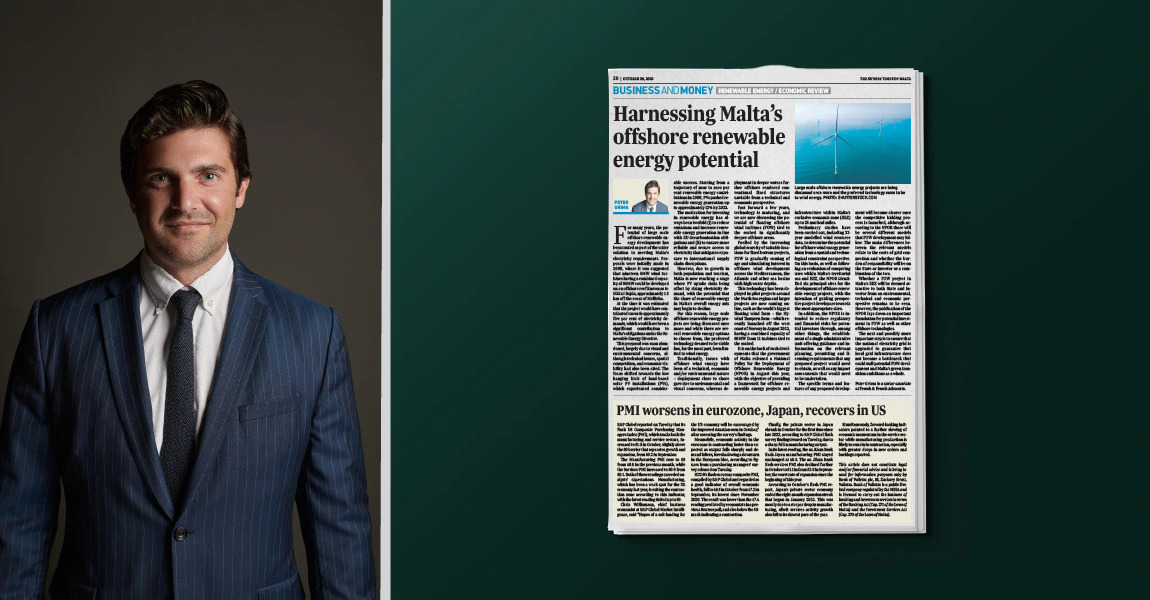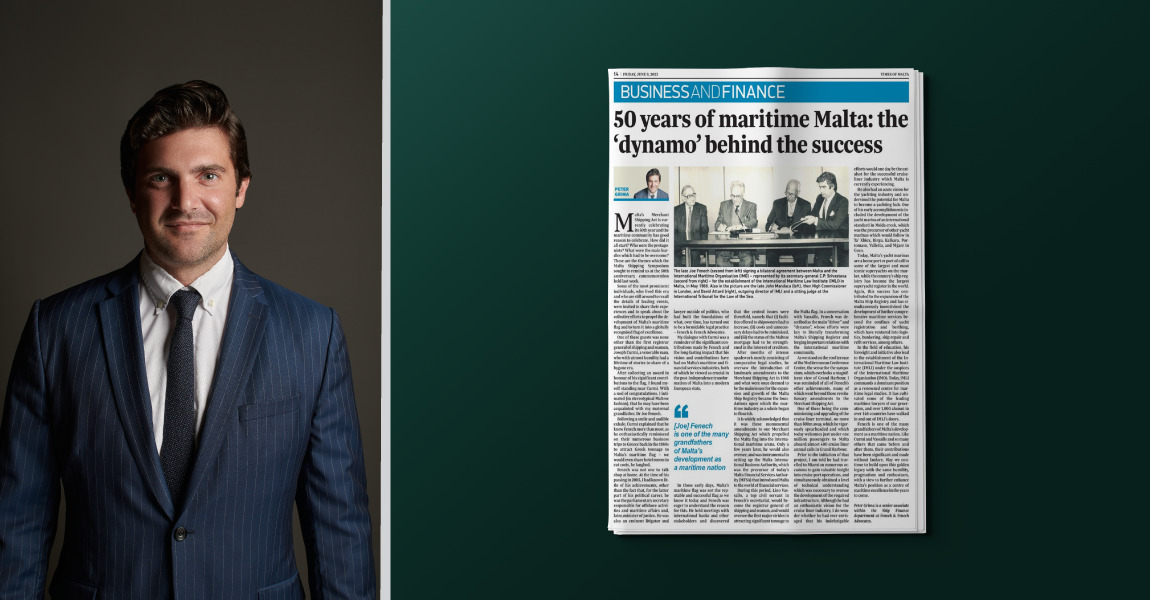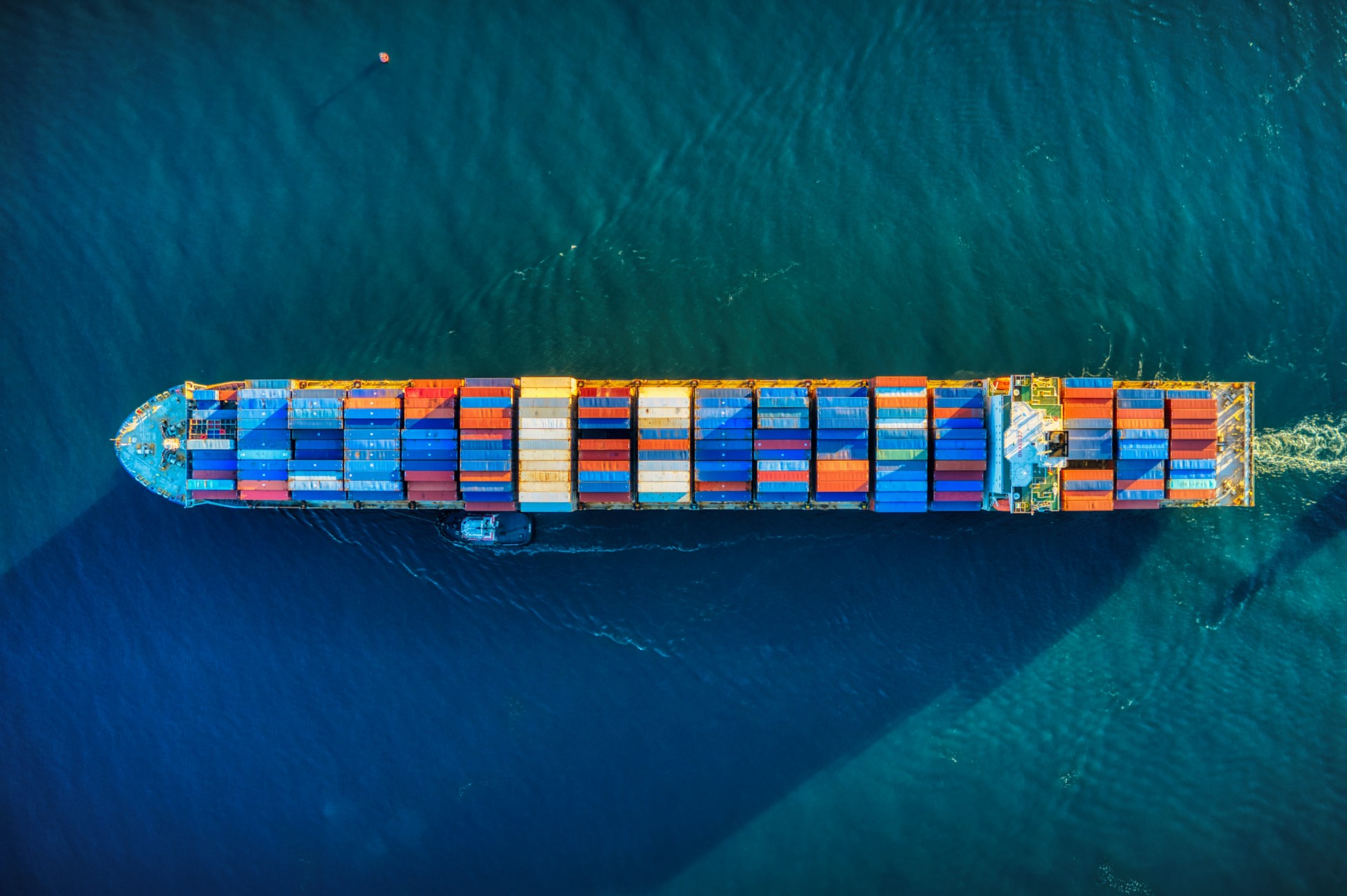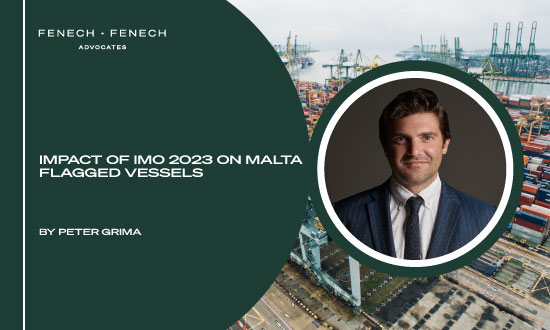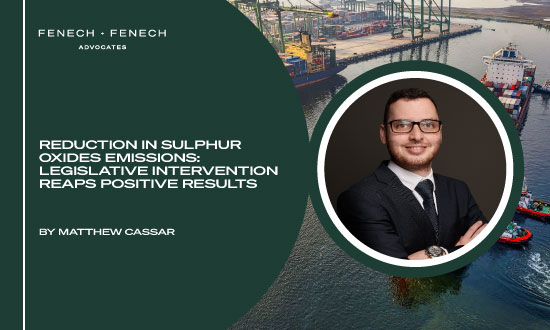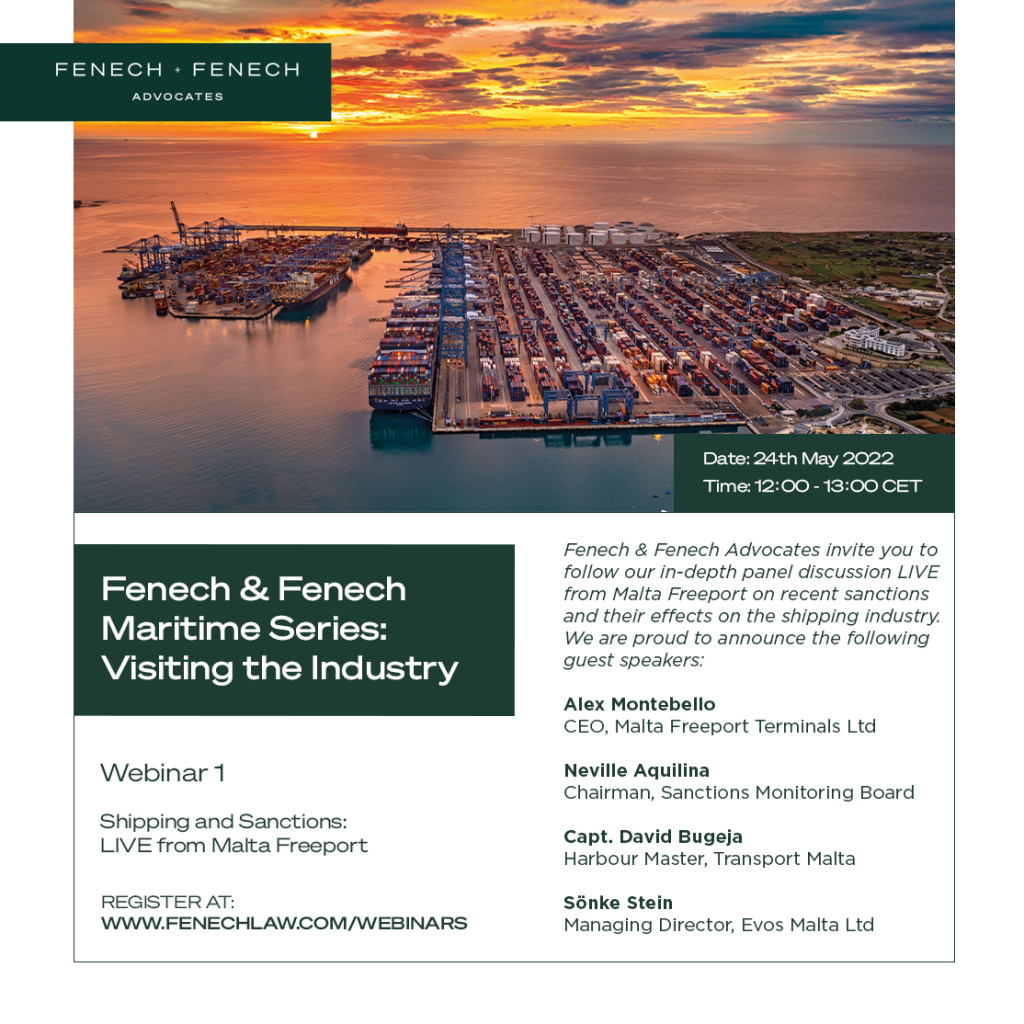On the 18 December 2023, the European Union adopted its 12th sanctions package, which focussed inter alia on curbing down on the circumvention and evasion of the Russian Oil Price Cap. The twelfth round of restrictive measures took aim at the tanker vessel sales market with a view of bringing about more transparency with respect to these sale transactions and the parties involved.
Article 3q of EU Regulation 833/2014 introduced a general obligation on any national of a Member State, natural person residing in a Member State, and legal person, entity or body which is established in the Union who may sell or transfer (directly or indirectly) tanker vessels to any third country to immediately notify the competent authorities of the Member State where the owner of the tanker is a citizen, resident or is established about the sale.
Accordingly, any Maltese ship owner when selling a tanker to a non-EU purchased is legally bound to submit a notification to the Maltese Sanctions Monitoring Board, irrespective of whether that tanker is flagged in an EU jurisdiction or elsewhere. Article 3q (4) of Reg 833/2014 sets out the following items as the minimum information required when filing a notification:
- the identities of the seller and the purchaser,
- the incorporation documents of the seller and the purchaser including the shareholding and management (where applicable)
- the IMO ship identification number of the tanker; and
- the Call Sign of the tanker
It should also be noted that the Maltese Sanctions Monitoring Board has implemented a standard notification form for such reporting purposes and which mirrors the above requirements (which can be accessed online at https://smb.gov.mt/standard-templates/)
This notification obligation was also imposed retrospectively on all tanker sales conducted between the period of 5 December 2022 up to 19 December 2023. With regards such past transactions, the former owners, as Sellers, had until the 20 February 2024 to notify the Maltese Sanctions Monitoring Board with the relevant information pertaining to their past transaction. Therefore, competent authorities in the EU were presumably inundated with reports during the first two months of 2024.
However, apart from imposing the above notification obligations on EU Sellers, Article 3q introduced a new blanket prohibition when it comes to the sale of tanker vessels. Article 3q (1) provides that it shall be prohibited for any EU Seller to sell, or otherwise transfer ownership, directly or indirectly, of tankers to any natural or legal person, entity, or body in Russia or for use in Russia. The only exception to this strict rule would be by way of a derogation afforded by the respective competent authority.
Now, whilst assessing whether a buyer of a tanker has Russian nationality is a rather objective exercise, what could be meant by “for use in Russia” is more subjective and could be susceptible to different interpretations. This lack of clarity is amplified by the fact that there is no definition of this term under both the Regulation as well as the FAQS.
Against this background, on the 4th March 2024, the Sanctions Monitoring Board issued a Guidance Note on the Implementation of Article 3q of Council Regulation 833/2014 on the sale of Tankers wherein it explained what the Board considers “for use of Russia” to entail.[1]
The Maltese Board has taken the view that a tanker would be deemed to be used in Russia if “it would be used to transport, or be re-exported to transport, crude oil or petroleum products listed in Annex XXV, originating in Russia or exported from Russia, for import into the Union or for transport to third countries and that it will enter Russian territorial waters, and/or will access Russian ports and locks to do so. STS transfers are also included.”
Moreover, the Board recommends that where any Maltese Sellers has reasonable grounds to believe that a tanker may be going to be used in Russia by the purchaser of the ship, an authorisation request for its sale in accordance with Article 3q(2) of the Regulation must be lodged with the Sanctions Monitoring Board. It might be also worth recalling that the EU FAQs have also clarified that Article 3q would not be applicable in the case of long-term charters or bareboat charters. Nevertheless, it could still be pertinent and of relevance whether there is a purchase option or obligation under the bareboat or demise charterparty.
Accordingly, if there is any suspicion on the part of a Maltese seller that its vessel is to be sold to be used in Russia, then the same seller should file an application before the Sanctions Monitoring Board, which is empowered to decide on such authorisation requests and shall deny issuing authorisations should there be reasonable grounds to believe that the tanker would be used to transport, or be re-exported to transport, crude oil or petroleum products (listed in Annex XXV), originating in Russia or exported from Russia for import into the Union in breach of Article 3m or for transport to third countries at a purchase price per barrel exceeding the price (laid down in Annex XXVIII). The EU FAQs also provide some insight into what is expected from the Maltese national competent authority in terms of due diligence when considering any derogation or authorisation request.
Given the interpretation afforded by the Maltese sanctions authority, it would therefore be prudent for any Maltese Seller to always take a more cautious approach and to report in case of any doubt, wherever it has any suspicions that the vessel once sold could be used in Russia.
[1] Accessible on: https://smb.gov.mt/wp-content/uploads/2024/03/03032024-Guidance-on-Article-3q-on-the-Sale-of-Tankers.pdf




